It is a great time to be a hockey fan, as the first few weeks of the NHL season have shown…and that’s before Connor McDavid gets going. Some musing and observations from around the league, starting in Pittsburgh.
The Steel City is Freezing Over
Why is Erik Karlsson playing on the penalty kill? Yes, he has played it throughout his career, though San Jose Sharks’ head coach David Quinn was smart enough last season to greatly limit his time to what amounts to likely being the end of a few PK shifts. Early this season, Karlsson is taking proper shifts including last Saturday against the team who drafted him, the Ottawa Senators. Karlsson blew the coverage as I was doing a double take at his presence on the ice leading to Ottawa’s first goal in a 5-2 loss. Kris Letang on the PK is understandable, as his role has changed with Karlsson’s acquisition. Karlsson though, not so much, and is a perfect microcosm of Pittsburgh’s issues to start the season.
Ryan Graves’ early season struggles seemingly came to a head against the Senators. Ottawa’s second goal came in transition with both Graves and Marcus Pettersson, Pittsburgh’s two best defensive defensemen, on the ice. First, Graves overcommitted to trying to stop the ageless Claude Giroux as Ottawa’s quick transition game put Graves on his heels. In doing so, Graves either lost sight of or didn’t even realize that Brady Tkachuk was flying down the left wing. Tkachuk took the pass from the pass-first Giroux and blew past Graves to score on Tristan Jarry (who we’ll get to in a moment).
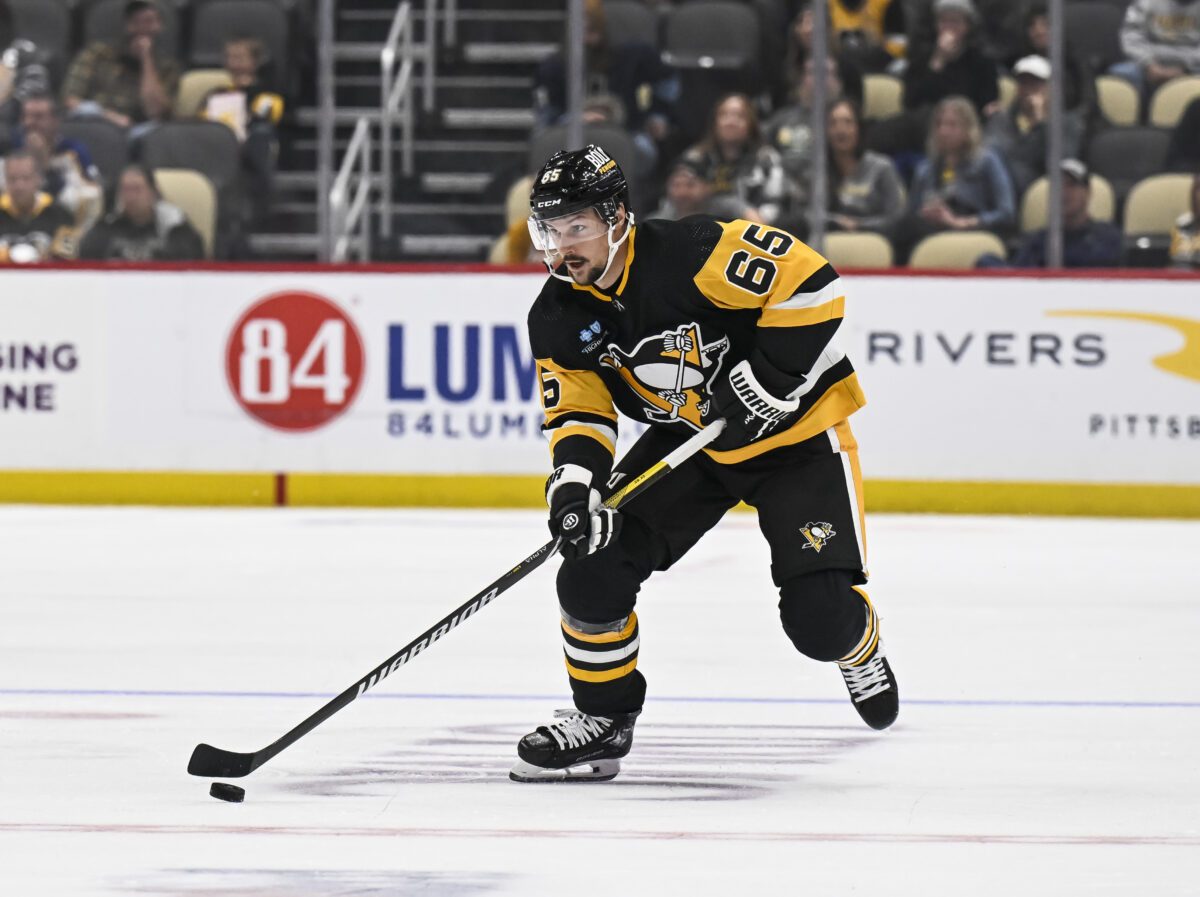
Graves was brought in to replace Brian Dumoulin as the defensive stopper beside Letang. Dumoulin’s play last season was a huge reason why Pittsburgh failed to make the playoffs. The play noted above, and sequence is one that Graves will have seen in games and practices thousands of times by now, and as the season progresses, it’s exactly the type of play that he was brought in to shut down. If not, then other teams’ transition games will expose Pittsburgh’s lack of speed and limited true defensive defensemen, and it will be another heartbreaking season for the Pens.
It’s good to see Drew O’Connor being given more opportunities, as he’s net-front on the second power play unit. O’Connor is really starting to come into his own as a top-nine forward, and it’s inevitable that the goals will follow. With how much of a driver and how comfortable O’Connor’s linemate Radim Zohorna looks on the ice, I wonder how long it will take before we see him on the second power play unit as well. Perhaps with Jeff Carter finally coming out of the lineup, this will be the time. It certainly would say a lot about Pittsburgh’s offensive potential to have two different third-line forwards on their second power play unit.
While he is still putting up points as one would expect, there is clearly something off about Sidney Crosby’s game. The speed is still there, as is the three-zone awareness, defensive responsibility, etc. Bryan Rust is flying to start the season, and Jake Guentzel has certainly been better than last year even if he’s not happy with his start. If the body is still there, the mind is still there, and his linemates are doing well, what is it?
Latest THW Headlines
If you watch Crosby’s decision-making with the puck, he’s nervous. Those nerves are coming out in his decision-making. He’s overthinking when to shoot or pass, and some of his passes are forced into areas that lead into turnovers. He’s passing when he should shoot, which speaks to his lack of confidence in his finishing ability right now. Doug Gilmour says this game is 80% mental, and while Gilmour is The King, on this topic I would respectfully disagree. Hockey, as with everything in life, is 100% mental. When you believe in yourself (and in the case of a team, those around you), anything is possible. If you can’t get out of your own way, all the skills in the world are meaningless. Crosby will get there, it’s a long season.
Related: Penguins’ Best Goaltending Option Was Always Tristan Jarry
Someone who needs to get there quickly is Tristan Jarry. Those two shutouts already feel like a lifetime ago. Three goals on nine shots against Ottawa, followed by a soul-crushing Mason McTavish snipe that Jarry clearly thought was going to be a deke attempt, and the faith around Pittsburgh in Jarry is shook. Pittsburgh has two injured goalies, which means it’s up to Jarry and Magnus Hellberg to get the job done on the ice. Jarry has to show that he’s the best option for this team.
Off the ice, Penguins’ president of hockey ops and general manager Kyle Dubas once hired famed Tom Brady mind whisperer Greg Harden to work with the Maple Leafs after the 2021 Stanley Cup playoff collapse against the Shea Weber and Carey Price-fueled Montreal Canadiens (from ‘Tom Brady’s Secret Weapon at Michigan Unveils the Key to Training Your Mind’, Forbes, August 15, 2023). How long will Dubas wait before hiring someone like Harden to work with this team, or perhaps Dubas already has?
It’s a topic that deserves a much deeper dive, but as with last season, a question that is jumping out is whether Penguins’ head coach Mike Sullivan is setting up his players for success.
Around the NHL…
While there are always Evgeni Malkin-level exceptions (Marcel Dionne, Chris Pronger, and Victor Hedman stand out), second-overall draft picks don’t often affect the game nearly as much as you would expect. History bares this out, with Hall of Very Good players like Kirk Muller, Bobby Ryan, Brian Bellows, and Kari Lehtonen (had to mention him, I was at that draft) among a litany of players who were longtime quality NHLers but not players who carried a franchise as one would hope from the second-highest draft pick in a given year.
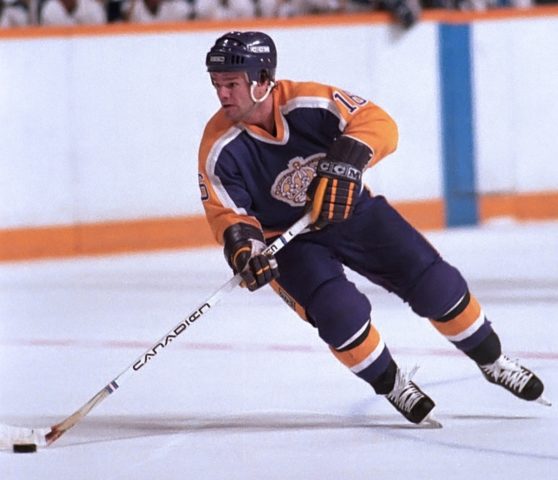
The negative talk around Los Angeles Kings’ forward Quinton Byfield since he was drafted second overall in the 2020 NHL Entry Draft has always been disconcerting for a multitude of reasons. Thankfully, Byfield is taking away any reason to say anything except positive plaudits over his play.
Starting the 2022-23 season in the American Hockey League, Byfield forced the Kings to recall him after starting with nine goals and 15 points in his first 16 games, alongside a ridiculous 21.4 shooting percentage. Byfield spent much of last season riding shotgun on the Kings’ top line, producing three goals and 22 points in 53 games, along with an equally impossible shooting percentage of 4.1. His playoffs were more impressive, with a goal and four points in six games, as he rose to the occasion for a team that did not before falling to the Edmonton Oilers.
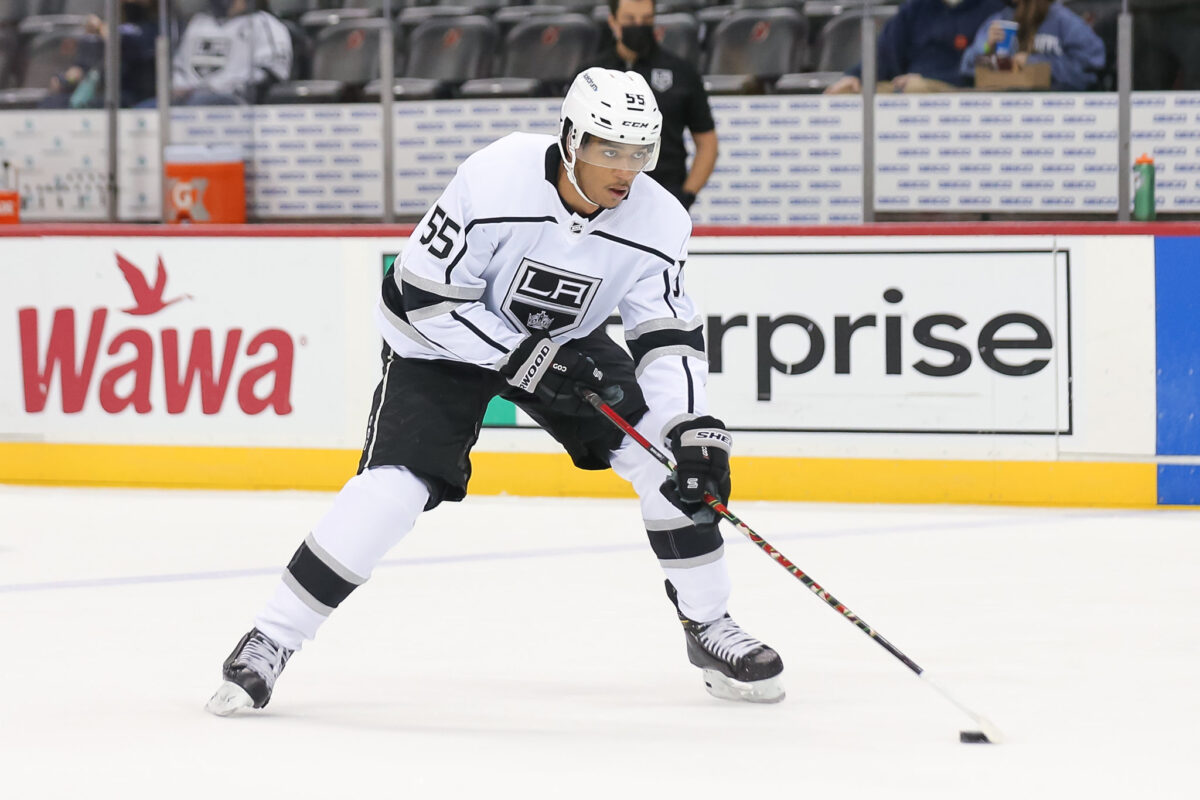
After scoring just one point (a goal) over his first five games this season, Byfield has a goal and five assists for six points in his last five games. Watching him play against the Maple Leafs earlier in the week, I saw a player whose core strength has improved, and as such so has his athleticism, with a much cleaner skating stride making an already fast player even quicker. Barely 21 years young, Byfield has far more poise and confidence this season, which is a testament to both Kings’ head coach Todd McLellan’s belief in Byfield, and to the leadership of Kings’ captain and linemate Anze Kopitar. Ignoring the white noise and sticking to the right development direction will benefit both Byfield and the Kings for years to come.
On the other end of the spectrum, the following players will not play in the NHL after this season:
- Jeff Carter
- Ryan Reaves
- Marc-Edouard Vlasic
Carter (zero points in nine games says it all for a former first-line offensive dynamo) is being hidden better in Pittsburgh this season than last, hidden so well that there’s a distinct possibility he’s in the press box for the first time against the San Jose Sharks last night, while the Pens give Vinny Hinostroza a chance, and perhaps await Jesse Puljujarvi’s music to hit?
Related: Monday NHL Notes on Matthews, Bedard, Nylander & More
In Toronto, the Reaves signing is wreaking havoc on every aspect of the team except the dressing room, which makes you wonder why their offer to Reaves wasn’t to be an assistant coach. First, his $1.35 million salary cap hit necessitated the trading of Swiss Army knife Sam Lafferty, one of the fastest players in the NHL, one of the top scorers on the penalty kill in the league, and someone who was one of Toronto’s best players in Games 4 and 5 against the Florida Panthers last spring. An immediate downgrade.
While starting the season fighting like it’s 1990, or even 2013, Reaves has been an absolute anchor to the Maple Leafs in myriad ways. He’s been on the ice for six goals against and zero goals for. We could talk about the analytics (they’re spectacularly bad), or the fact that Leafs’ head coach Sheldon Keefe is starting David Kampf on around 50% more offensive zone faceoffs than at any point in his tenure with Toronto, in order to protect Reaves, which with zero goals for, is a waste of every offensive zone opportunity they’re on the ice for. The true inditement of Reaves’ play though may be in the opposite end of the ice, where in 10 games, he has only had 14 defensive zone faceoffs (1.4 per game), a far cry from when he averaged three per game for Minnesota last season and a per-game number that will continue to go down.
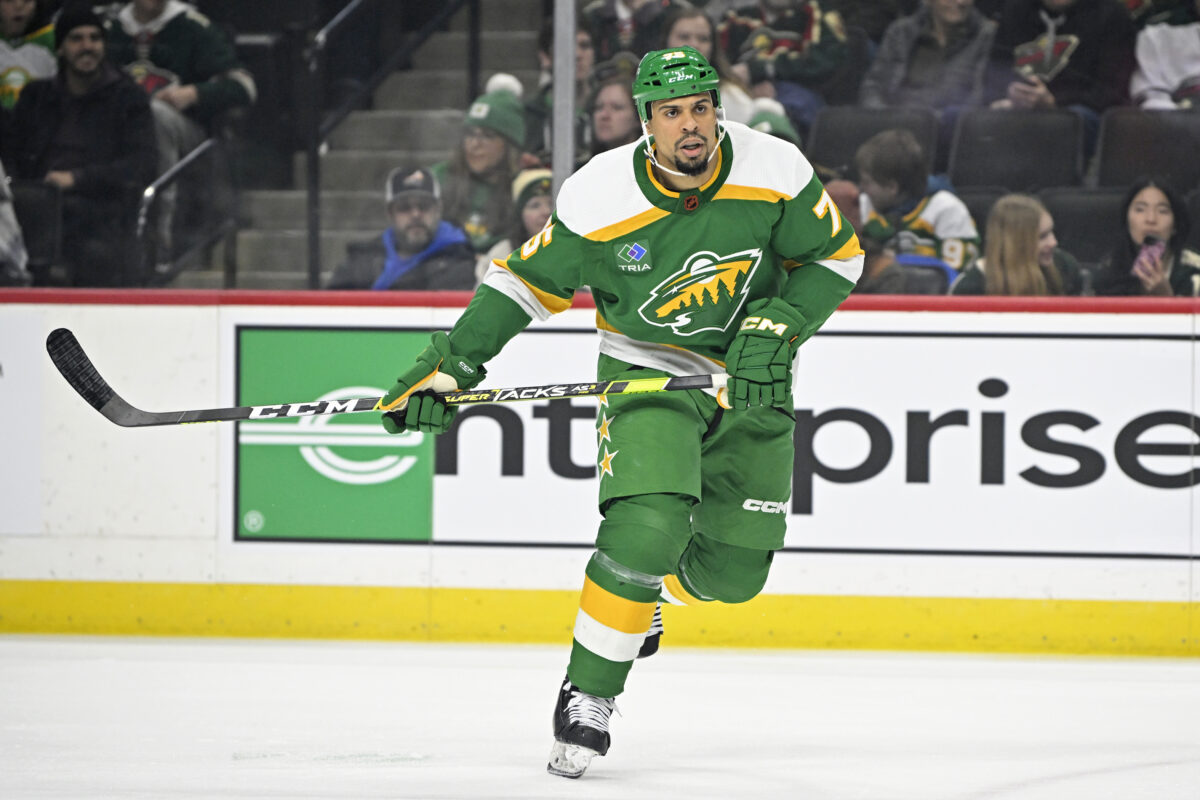
People are wondering why Auston Matthews slowed down. One reason why is because he’s taking neutral zone faceoffs at the highest clip of his career, resulting in the least amount of offensive zone faceoffs per game, to make up for how badly sheltered Reaves needs to be at this point in his career. William Nylander, who with at least one point in every game is the engine for the Maple Leafs early this season, has taken even more defensive zone faceoffs, which considering Nylander’s defensive limitations is shocking (and speaks further to how dominant Nylander has been this season). As we talked about with Sullivan, Keefe isn’t setting up his players for success – though at least in Keefe’s case, he’s not the messenger, as that is coming from above and Keefe is doing his best to find creative ways to make the impossible work.
A 49ers Style Blowout in the Bay Area
Vancouver Canucks 10 – San Jose Sharks 1. It’s early, and leaders don’t overreact and make rash changes simply to make a change. That being said, with San Jose at 0-9-1, the boiling point there has to be coming quickly. With those changes, do you start to bench Marc-Edouard Vlasic? Once the Olympic gold medal and World Cup-winning beacon of defensive zone play, Vlasic, age 36 and in his 17th NHL season has been on the decline for years, and it seems to now be at the point of no return. Of his entire Sharks’ team who’s played more than a mere four minutes with Vlasic this season, all but two skaters have a worse relative Corsi (shot attempts when on the ice) playing with Vlasic versus playing with other players, and one of those players (Ryan Carpenter) has ridiculous numbers that will come down to earth as the year progresses.
More of the same with relative Fenwick (unblocked shot attempts), as only three skaters are better with Vlasic on the ice. His base analytics are so far beyond replacement level that it’s impossible to justify his presence in the lineup. For traditional stat heads, his minus-4 is misleading because he’s only playing 11:45 per game at even strength and has missed three games this season with a lower-body injury. That’s a pace of minus-33 in 57 games, with no points, and as he only has a single hit thrown in seven games, a pace of eight hits in a season. It makes you wonder why San Jose doesn’t reach out to Pittsburgh and ask about someone like Ty Smith.
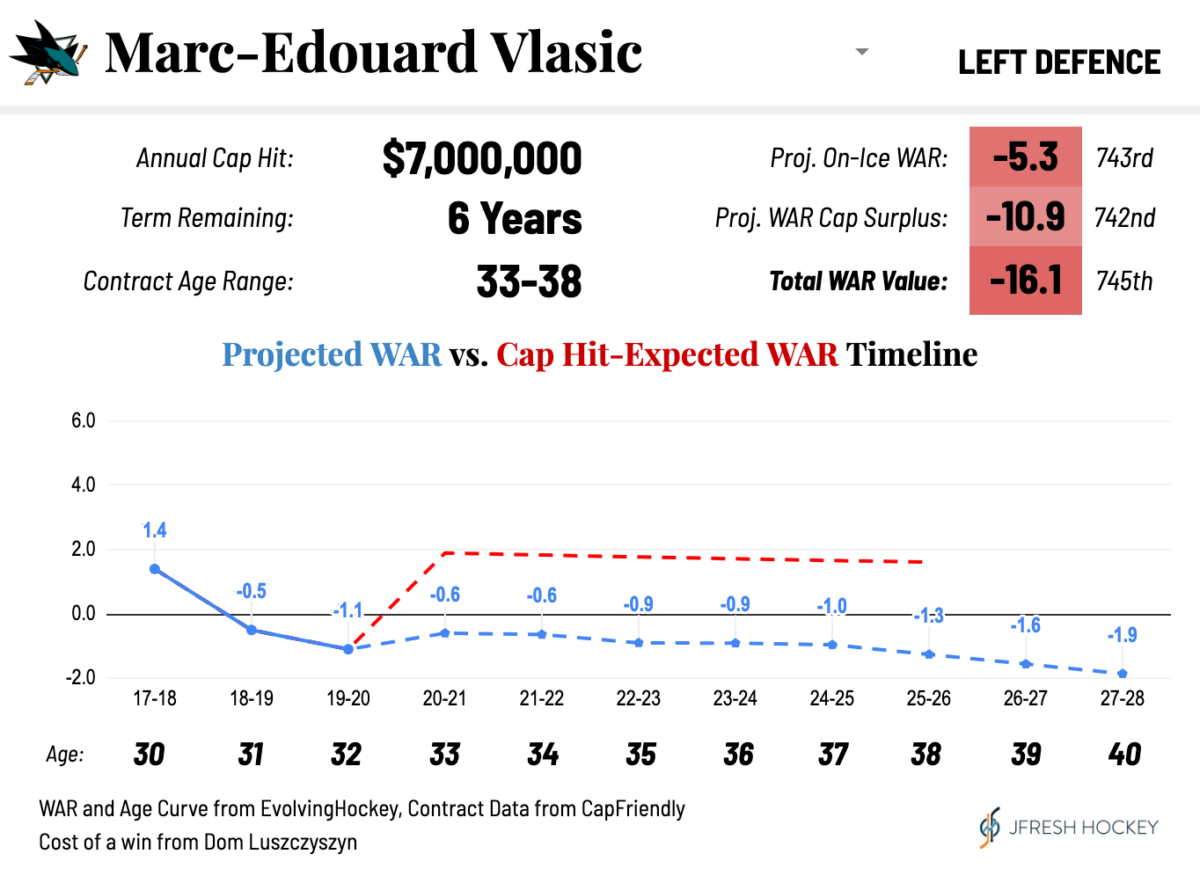
On the positive side of the game, a look at the early season NHL scoring leaders shows some names that you may not expect to see:
- Jesper Bratt (speed to burn and great chemistry with Jack Hughes)
- JT Miller (who recently scored a big goal for the Canucks after being on the wrong side of head coach Rick Tocchet’s benching)
- Quinn Hughes (both of whom benefitted from the 10-1 game against San Jose), is on pace for a stout 131 points this season.
- Dylan Larkin is still around and teaming up with Alex DeBrincat.
- Brock Boeser is another Canuck flying under Tocchet (an early Coach of the Year candidate)
- The once 40-goal scorer turned shutdown defensive center, William Karlsson.
- The underrated Travis Konecny (tied for the lead in goals with DeBrincat and the unstoppable force of nature, Frank “The Tank” Vatrano)
- The veteran John Tavares tied with the second-year pro Mason McTavish and Anaheim’s Ryan Strome, because someone has to be feeding The Tank.
And Finally…
NHL scoring leader, the aforementioned and erstwhile healthy Jack Hughes, with 20 points in his first 10 games and an early-season pace that is higher than what Connor McDavid ended last season with, was forced to leave Friday night’s game against the St. Louis Blues with the dreaded upper body injury (I say “dreaded” because we don’t know if it was a concussion). Here’s wishing Jack a speedy recovery, as the NHL is a far better league with him tearing around the ice as an unstoppable offensive dynamo.
